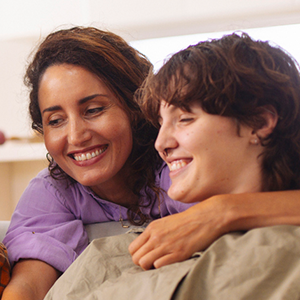outreach: traumatic experiences

Erin* was usually outgoing, energetic and up for anything. She always wanted to be doing something with her friends or family. Lately, however, Erin was staying home more often and seemed much more irritable, worried, and restless. Although she could not quite explain what was bothering her, Erin liked the idea of talking with a counselor at Outreach.
Erin told her counselor that she felt agitated all the time—like she just couldn’t settle down. Sleeping and eating was becoming erratic; she was finding it hard to concentrate in school or feel a part of things when she was out with her friends. Erin explained that her mind has been wandering a lot. At times she was not even aware of what she was thinking, as if time passed without notice. Other times, she would think about things that happened in the past such as a car accident she was in two months ago. Erin stated that no one was seriously hurt, she had some soreness and bruising, but she often thinks about the car spinning, and the crashing sound as it smashed into a pole.
The symptoms that Erin described are typical of those who have experienced a trauma. When people are in situations where something dangerous is happening that they can’t control and they feel helpless, it causes the brain to be aroused by panic and fear, and may even shut down in order to protect the person. After the traumatic experience, it’s not uncommon to feel hyperarousal in your body or experience periods of disassociation where you feel off in a different world. The individual will also replay the traumatic incident and feel “stuck” in it.
Erin and her counselor developed a plan that began by helping her calm her body. She recognized that since the accident, her body was reacting as if it was in constant danger. In order to shut off this false message, Erin focused on taking deep calming breaths and doing muscle relaxation. She noticed an immediate impact and felt more settled inside. The second goal was to help Erin feel more in the present moment and not stuck replaying the past. Erin found that the best way to do this for her was yoga. She liked being aware of her movement and breathing and felt more grounded in the here and now. The counselor also introduced Erin to mindfulness to help her notice her body, thoughts and feelings without reacting to them. Once she felt safe and calm, Erin was able to talk about the accident and realize it was in the past and could not hurt her anymore.
*Erin represents a typical Outreach client. Details do not correspond with any specific case in order to protect client anonymity.

Outreach Teen & Family Services is a nonprofit, confidential counseling service. We offer counseling and educational programs to youth and parents that are affordable, accessible, and discreet; all within a welcoming, supportive environment.





